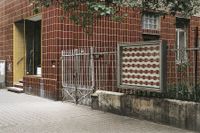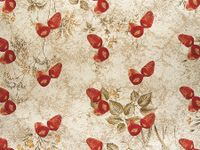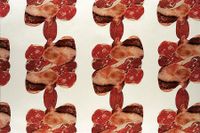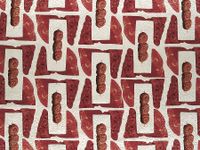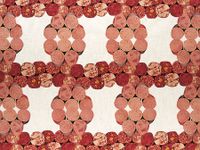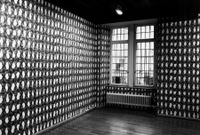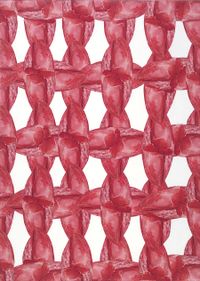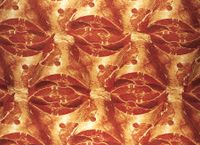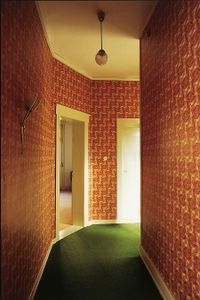Fleshpaper – Fleischtapeten
Fleischtapeten,
Architekturbüro Morgenstern,
Schaukasten und Musterbuch,
Frankfurt am Main,
1996
The compulsion to relieve one's own four walls of their nakedness results in blithely taken recourse to paper. The wallpaper's patterns reflect the inhabitant's social background as well as predominant trends in decorating. It's paper-thin skin creates illusions and evokes trust, flatters the would-be decorator and evidences taste. It provides for Gemütlichkeit. It comprises the stage set of an intimate theater. It responds to much ado about nothing with silence, if, in this case, with an incredibly telling silence: not with apple blossoms but with liverwurst blooms.
Even the caveman decorated his cavern with images of his favorite foods. Why not do so today by using cunningly-knotted wreaths of sausage? Why not a floral ornament made of cubed stewing met, of ornament is crime. As stated in a brochur of the butcher's guild, numerous scientists support the opinion that the systematic and collective acquisition of meat effected the critical growth of primitive man's brain and thus made language possible.
Christiana Protto reworks cut-outs from advertising circulars like those which overflow each day from our mailboxes: scanned decorator sausages, pork roasts, stewing beef, ham butts, spare ribs, superimposed or exposed – so beheld, satiated, a rather perverse element of normalcy. Seen from a certain distance, the fleshpaper looks like any other wallpaper.
From closer up, however, it evokes a sense of shock at the connection between our questionable culinary customs and our no less questionable need for decoration.
Christian Schröder
Daidalos, Architektur Kunst Kultur
Das Grosse • On Bigness
1996
Schwein haben,
Forum im Dominikanerkloster, Frankfurt am Main,
1997
Fleischtapete "Agnes"
Fleischflur,
Wohnraum Karin Görner,
Frankfurt am Main,
1998
